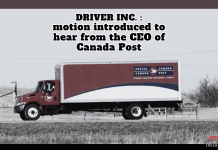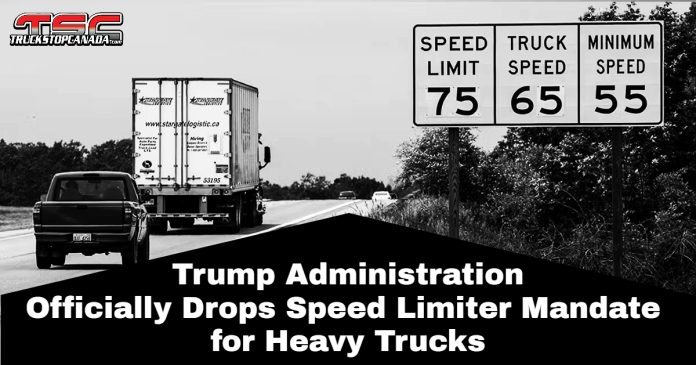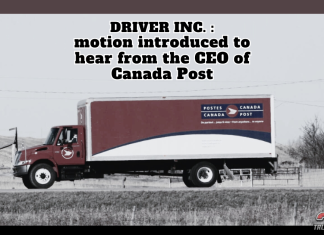The Trump administration has formally scrapped a long-standing federal proposal to mandate speed limiters on heavy trucks—a decision welcomed by several trucking associations but one that also highlights deep divisions within the industry.
Originally spearheaded by the U.S. Department of Transportation (DOT), the Federal Motor Carrier Safety Administration (FMCSA), and the National Highway Traffic Safety Administration (NHTSA), the regulation aimed to cap truck speeds between 60 and 68 mph (97 to 109 km/h).
The proposal, decades in the making, was ultimately shelved as part of former President Donald Trump’s broader deregulatory agenda, specifically under executive orders titled “Unleashing Prosperity Through Deregulation” and “Enforcing Commonsense Rules of the Road for America’s Truck Drivers.”
Data Considered Inconclusive
According to the official reasoning, federal agencies were unable to clearly demonstrate significant safety or economic benefits from the proposed rule. They also cited inconsistencies with existing speed limits in many U.S. states—some of which allow speeds above 70 mph (113 km/h)—as a complicating factor.
Furthermore, regulators pointed to the growing effectiveness of other safety technologies, such as automatic emergency braking systems, which they say offer more measurable improvements in crash prevention.
Mixed Reactions Across the Industry
The response from the trucking sector has been sharply divided.
The American Trucking Associations (ATA) supported the move, calling it aligned with the pursuit of smart, targeted regulation. The Owner-Operator Independent Drivers Association (OOIDA), a vocal opponent of speed limiters, argued that the mandate would have disadvantaged independent drivers and potentially worsened road safety by increasing speed differentials between vehicles.
The National Private Truck Council (NPTC) echoed those concerns, stating that most private fleets already use speed limiters voluntarily. The group advocated for enforcement of existing laws rather than a federally imposed standard.
On the other side, safety advocacy organizations like the Trucking Alliance, the Truckload Carriers Association, and the Institute for Safer Trucking had supported a mandatory speed cap, citing safety concerns.
A Regulatory Saga Spanning Decades
The idea of mandating speed limiters for large trucks dates back to the 1980s. At that time, Congress commissioned a study on the potential safety benefits of such technology. Released in 1991, the report concluded that while the benefits were modest, trucks were generally less involved in speed-related crashes compared to passenger vehicles.
Interest in speed limiters resurfaced in 2006 after a safety advocacy petition prompted federal agencies to revisit the issue. A preliminary rule was drafted in 2016, but progress stalled amid political shifts and industry pushback.
In 2023, the FMCSA proposed setting the limit at 68 mph before ultimately backing away. The official withdrawal of the rule in July 2025 brings an end to what many describe as a decades-long regulatory saga.














